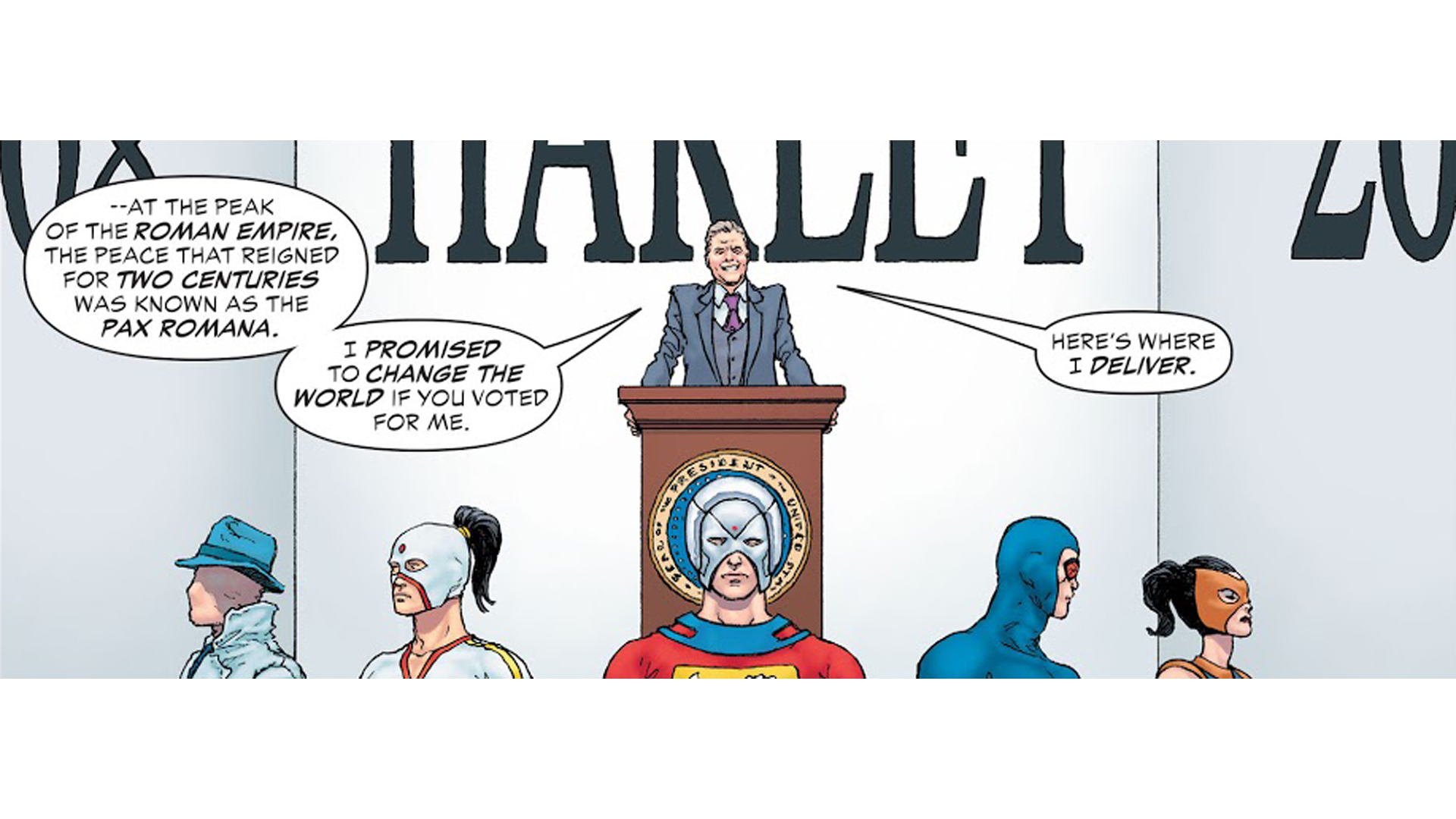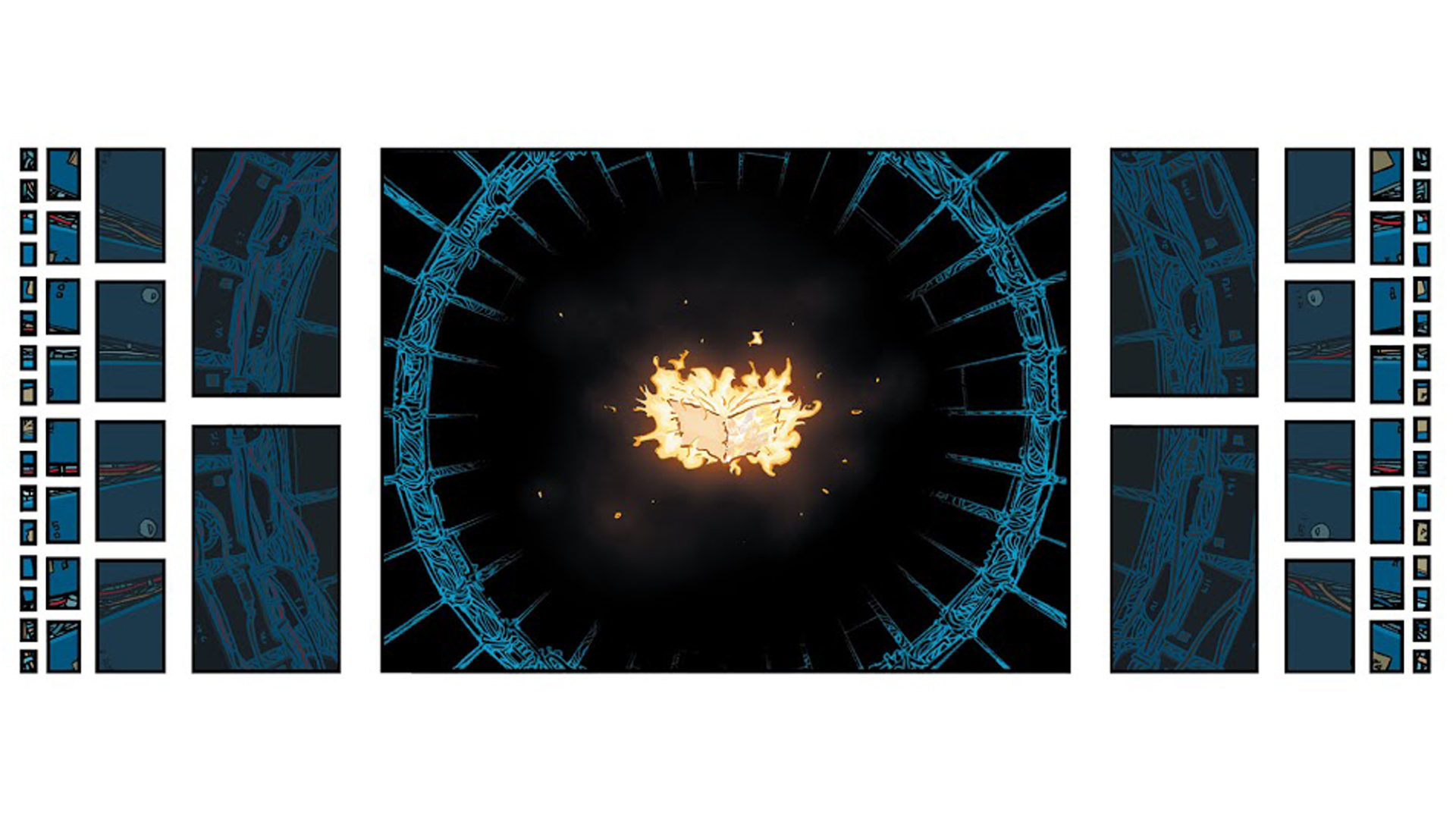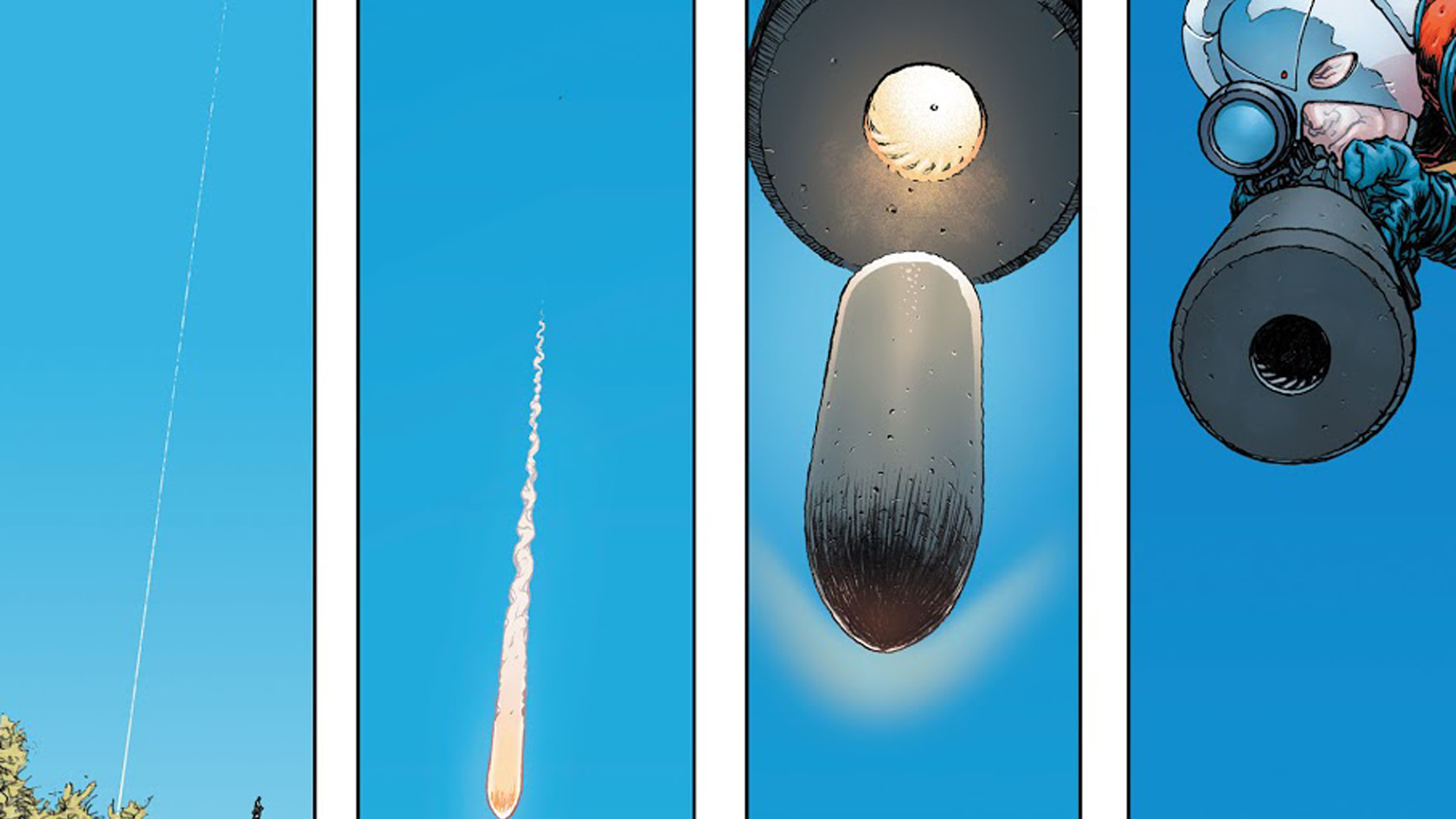GamesRadar+ Verdict
An expert meta take on the DC heroes that inspired the Watchmen
Why you can trust GamesRadar+
The Multiversity: Pax Americana is another installment of Grant Morrison's multiverse-spanning epic - this time leaning on some auspicious source material. In this one-shot, we check in with the Charlton Comics heroes of Earth-4, a group probably most known for being the direct inspiration for Alan Moore and Dave Gibbons's Watchmen. Frequent Morrison collaborator Frank Quitely delivers on the art side with his trademark brand of big action balanced by somewhat unsettling character renderings and depictions of violence.

With this chapter of the larger The Multiversity event, Morrison seems to be expanding the idea of the Multiverse to include not just places where different version of heroes live but places where actual ideas live. The Earth-4 heroes have an intrinsic connection to Alan Moore and Dave Gibbons, but Morrison sprinkles in other ideas and themes that we've seen in Moore's work to beguiling effect.
"This world rewards its bastards. Heroes are for movies. The super-hero is dead."
With those words, Morrison might have boiled down Alan Moore's feeling about comics in a mere three sentences, and that idea prevails throughout the issue. But Morrison doesn't forget about his own goals for this series. Once we meet all the major players and see their obvious connections to their counterparts in Watchmen, we also are brought back to the idea of the cursed comic - a thread that Morrison has pulled through every issue of The Multiversity event. Morrison uses every trick in their arsenal to keep up the mystery.

Captain Atom's direct address of the reader is unsettling especially after Morrison flips a famous Moore quote and has a character say "This is not an imaginary story..." Captain Atom is the most intriguing character this time around. He exists in all time and space simultaneously but he does not leave Earth the way Doctor Manhattan does. Instead, he stays around, and his presence is a powerful force. Morrison gives us a great scene with Captain Atom and his dog that gives us an idea of how disconnected he is from our reality. The juxtaposition of a god pondering the meaning of everything over a dog should be enough to give an astute reader a little chuckle, but Atom's methods are horrific. Themes of life, death, time, reality, purpose and, oddly enough, vivisection have stayed strong throughout.
Frank Quitely is a rare talent. His work eschews description but I'll try. I know many readers are put off by the textured look of his characters, but it's scars and pockmarks and wrinkles that, I think, help characterize them even more. The purer a character is, the easier they are to look at. The more unsettling their actions become, Quitely changes their outward appearance in some way to reflect that. He definitely doesn't hold back with regards to action and violence either. Getting punched in the mouth by a superpowered being is no small moment, so Quitely lets that all out on the page. Teeth shatter. Blood flows. It might be a little much to stomach, but "this is no imaginary story," and Quitely's exaggerated realism carries that theme through to its end.
The Multiversity: Pax Americana is a dense book. Every page is packed with panels. Every panel is packed with symbolism and it's all serving Morrison's bigger ideas for this series. Readers might be turned off by Morrison's somewhat haphazard approach to time in this issue, but it's almost as if he's letting the characters control their own fates. Atom loses some awareness of where and when he is the same way that the reader might. Time flips between forward and backward on a whim and without warning.

Morrison and Quitely challenge the idea that anything you read is ever all that straightforward, and that's a scary thought. If you could prevent something from happening just by turning back a comic book page, would you?
Get to know the bizarre story behind Peacemaker.
More info
| Genre | Sci-fi |
| Description | A war game where peace, and not killing, is the main objective. |
| Platform | "PC" |
| Release date | 1 January 1970 (US), 1 January 1970 (UK) |
Pierce Lydon has been a contributor to Newsarama for over 10 years, writing everything from reviews to deep dive explainers, to interview pieces and best lists.



